Screen stars: one-off cinemas across the globe
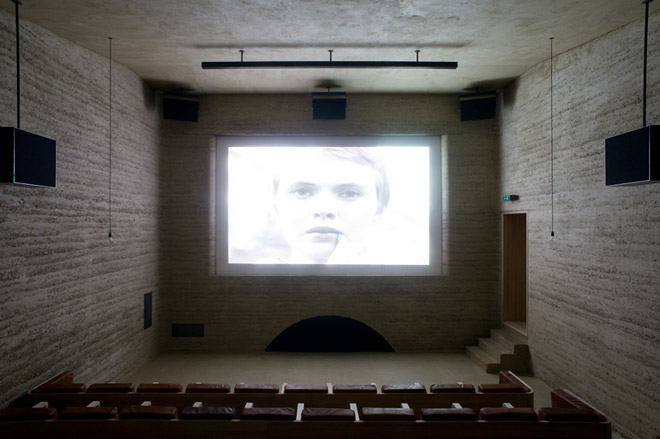
Cinema Sil Plaz, Switzerland
Over two decades ago, the last cinema closed in Ilanz, an Alpine town in the Swiss canton of Graubünden. To satisfy the locals’ cinephile needs, a group of people interested in film and culture formed the Filmclub Ilanz in 1989 and, after staging screenings in makeshift locations (including the town hall), they had a stroke of luck in 2004 in the shape of a 19th century former forge, which had just become vacant. After several years of screenings, they decided to revamp the space, with the help of fellow club members Capaul & Blumenthal Architects, to create a fully fledged cinema, which opened last September.
The ETH Zurich graduates have retained the raw character of the building, creating a cosy screening room and bar on a shoestring. Using local clay and a rammed earth construction method - a sustainable, low-tech building technique with sound-proofing benefits - the project was completed with the help of members of the Filmclub, who also conveniently included a rammed-earth specialist and a stonemason. Seating in the auditorium is padded by sheep-skin covered cushions stuffed by Filmclub members. Meanwhile, paint on the walls of the bar and stage area has been stripped back to reveal the original lime plasterwork of the building and floors are kept bare. The bar itself can be lifted by a manual forklift to make space for a dance floor when there are concerts - just one part of the Cinema Sil Plaz’s rich programme of events.
www.cinemasilplaz.ch
Tired of homogenous multiplexes, a few dedicated cinephiles are rethinking the movie-viewing experience, creating soulful screening spaces that invite viewers to linger long after the credits have stopped rolling. From summer pop-ups to entire new temples to film, here are a few that have got us reaching for the popcorn.
Cinema Sil Plaz, Switzerland
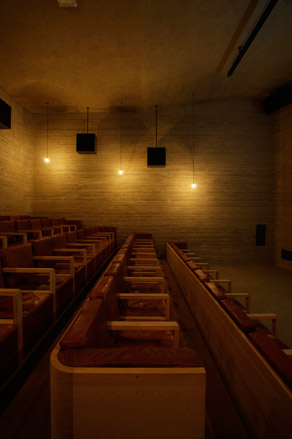
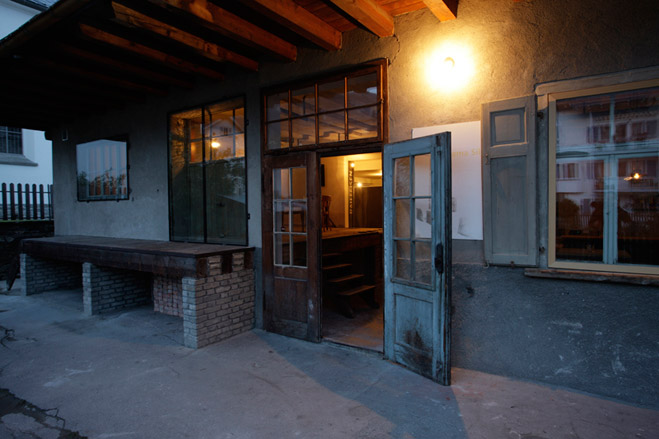
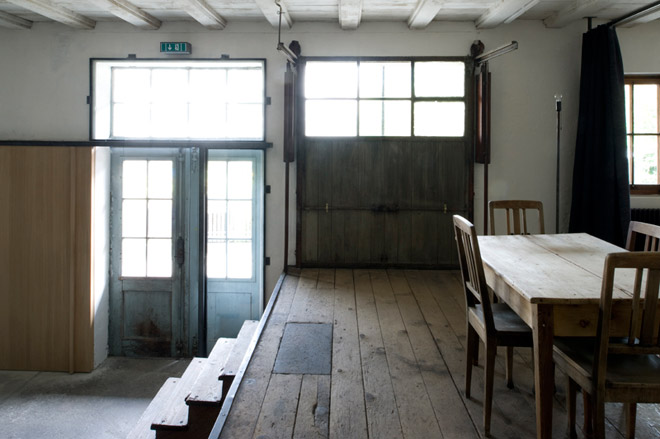
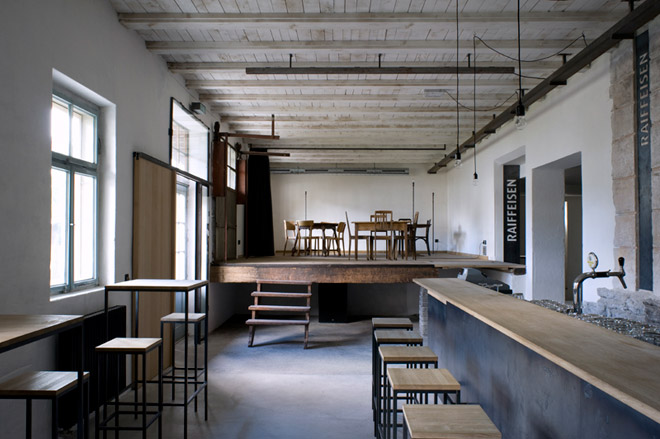
Nouvel Odeon Cinema, Paris
This intimate one-screen cinema in Saint-Germain-des-Prés is the handiwork of French designer Matali Crasset, who was enlisted by film company Haut et Court to completely rework the existing Racine Odeon cinema. ’I wanted to suggest an open space on the street,’ explains Crasset. ’Cinemas are always impermeable black boxes. They offer a film experience but not a spatial one. Here the size of the cinema offers intimacy, a warmth that you can’t find anywhere else, with sound and screen quality of a big multiplex.’
The Nouvel Odeon plays host to regular exhibitions and talks with directors, and is also home to a bar and café, which serves up gourmet salads and tarts, made from organic produce.
www.nouvelodeon.com
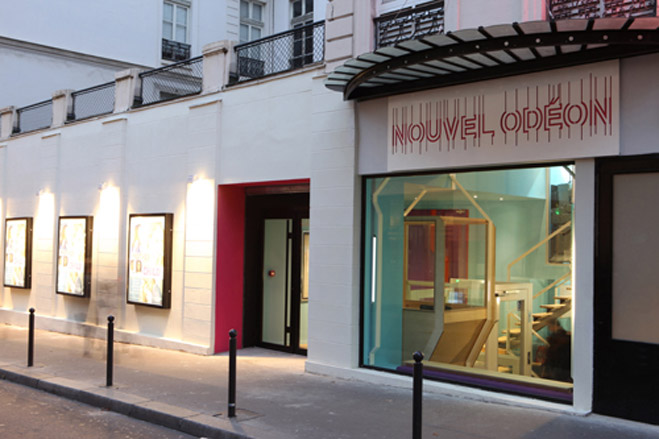
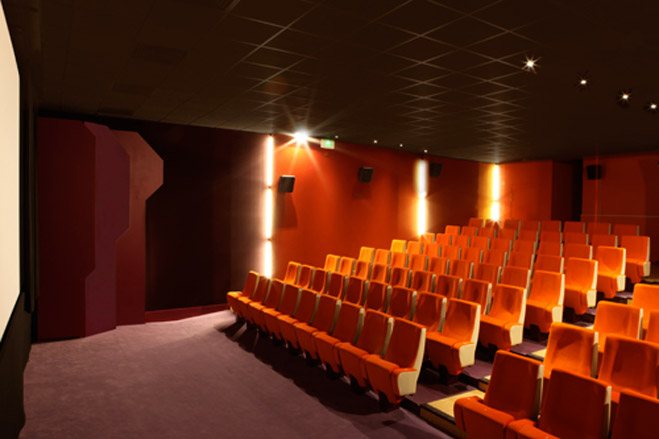
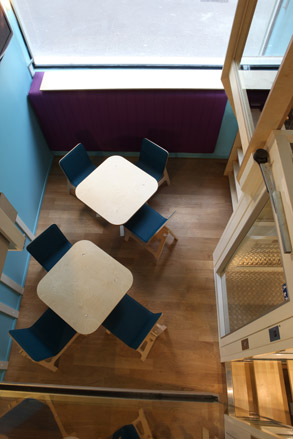
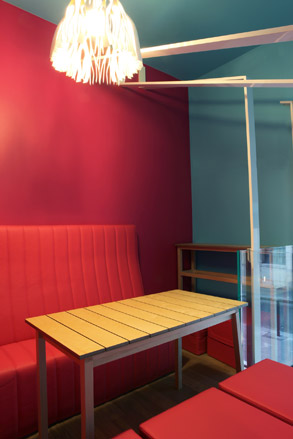
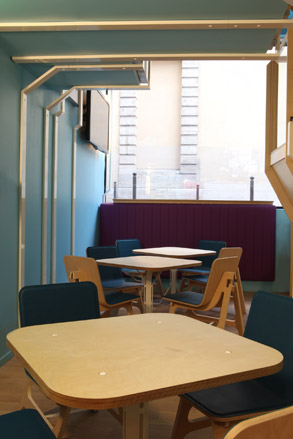
Folly for a Flyover, London
Collectively known as Assemble, the team of volunteer designers, artists and architects who brought us last year’s hugely popular Cineroleum (a pop up cinema in a disused Clerkenwell petrol station) have just completed the next instalment of their mission to reuse redundant urban spaces in London. Folly for a Flyover is a temporary structure sited below the A12 in East London, where it crosses the Lea Navigational Canal. Hand-built with local, reclaimed and donated materials, the Folly’s design is inspired by the surrounding red brick buildings of Hackney Wick and poses as an imaginary relic of the past. The early visual for the Folly was even presented as an old-school wood cut.
The Folly will host a six-week programme of waterside cinema, performance and play (until 25th July), devised in collaboration with curators of the Barbican’s ’Watch Me Move: The Animation Show’, with the building’s large outdoor steps doubling as an auditorium. Funded by Bank of America Merril Lynch, it is a highlight of Create11, the annual summer arts festival celebrating the creativity of East London and comprising of music, design, art, food and film events. Also part of Create11 is a temporary Floating Cinema - a tiny twelve-seat cinema on a barge that will be winding its way along London’s waterways.
www.follyforaflyover.co.uk
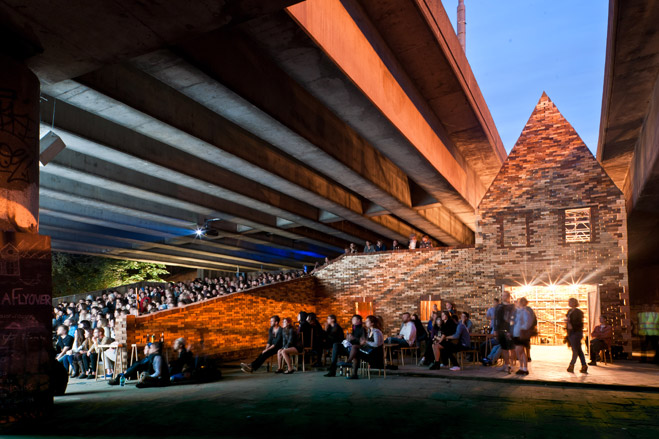
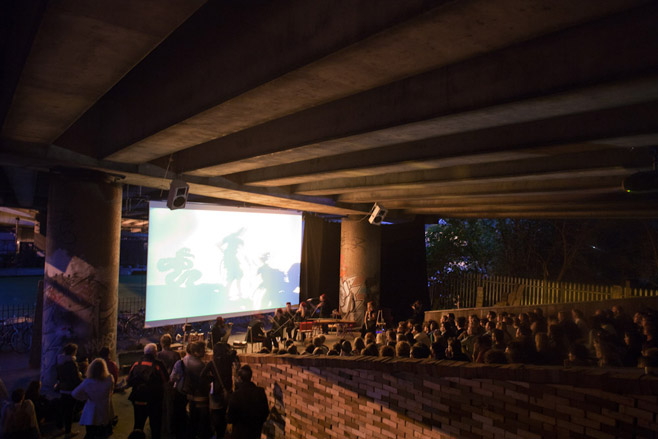

Wood cut early visual for Folly for a Flyover, London
Multi Mill, Amsterdam
Another outdoor screening experience will soon come courtesy of NL Architects. Their competition-winning Multi Mill design is intended as a flexible platform, with three wings that can act as a stage for film, theatre and fashion shows. Sited in Houthavens West, part of Amsterdam’s rapidly transforming port, the Multi Mill will be a revolving structure, ensuring an ever-changing backdrop. The structure will be completed early next year
Wallpaper* Newsletter
Receive our daily digest of inspiration, escapism and design stories from around the world direct to your inbox.



Teatro Cinema de Fafe, Portugal
Portuguese architecture practice Gonçalo Louro & Cláudia Santos Arquitectos (GLCS) have made a name for themselves by restoring theatrical gems - from the Virginia Theatre in Torres Navas to the José Lúcio da Silva in Leiria - and Teatro Cinema de Fafe is a beautiful culmination of their efforts. The architects began by restoring the early 20th century theatre, with its richly painted vaulted ceilings and grand hall, before adding a completely new extension to house a cinema and music academy. This volume gives the Theatre an emphatically modern new glass façade, through which you can see a series of walls clad in wood, which ties the architecture to the square in which the theatre is sited.
teatrocinefafe.blogspot.com
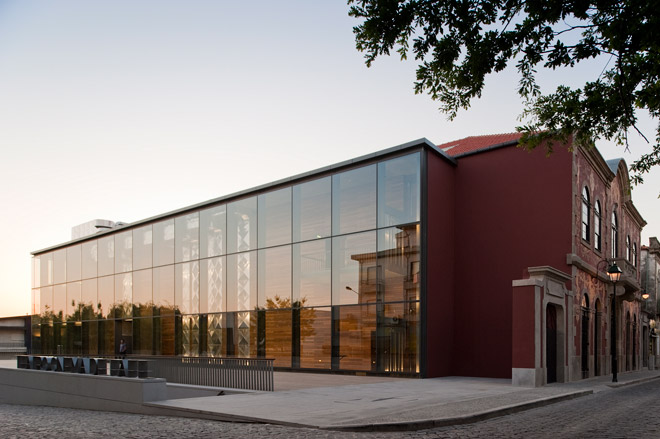
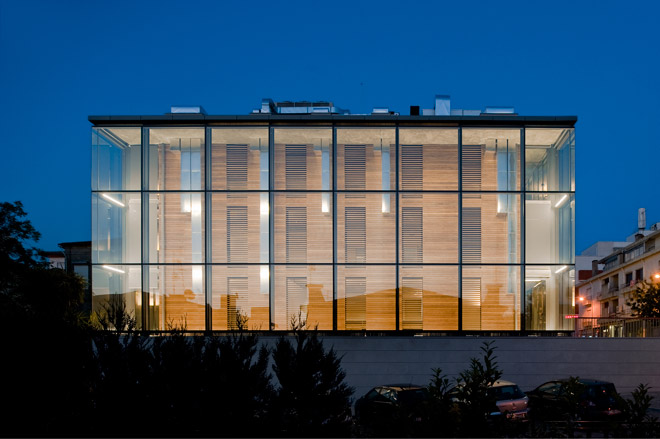
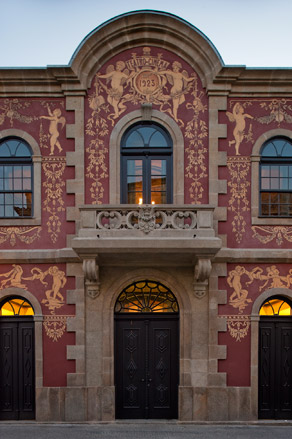
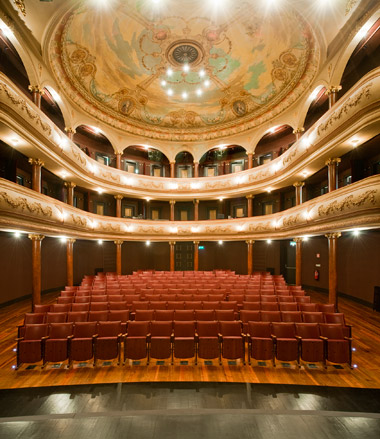
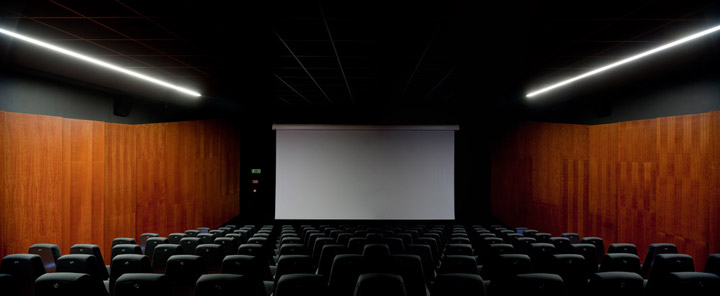
Heng Shan cinema, Shanghai
The first ’new China’ cinema, Heng Shan was built in 1951 but, after 60 years of use, was languishing in a poor state of repair until French practice Naço Architectures stepped in to give it an overhaul. The architects completely rethought the façade and surrounding areas. The cinema’s Art Deco-style face is now adorned with vertical Glass Fibre Concrete lines, which refine its appearance and lighten its hefty form. Meanwhile, the garden has been completely opened out to lure visitors off the streets
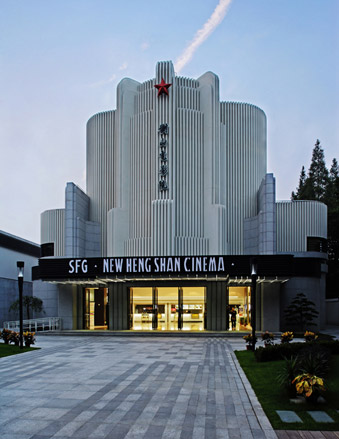
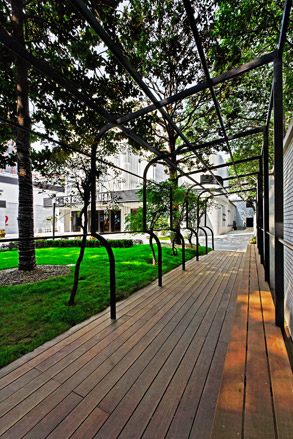
Le Royal Monceau Raffles, Paris
We’ve always been partial to the snug and private charms of a hotel screening room. A few of our favourites include those of hotel groups Soho House, Grupo Habita and Firmdale Hotels. New on the list is Le Cinéma des Lumières at Le Royal Monceau Raffles, the famous Paris haunt that recently emerged resplendent from a major overhaul by Philippe Starck. The state-of-th-art screening room - Paris’ first hotel cinema - features a program including surprise premieres and past classics, and the space can be booked for exclusive use. Its chairs are ridiculously comfortable and its snacks are not to be missed. Chefs Laurent Andre and Pierre Herme have devised a gourmet menu that offers a twist on the baskets of the candy girls in Parisian theatres.
www.leroyalmonceau.com
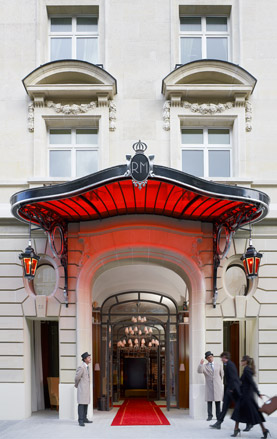
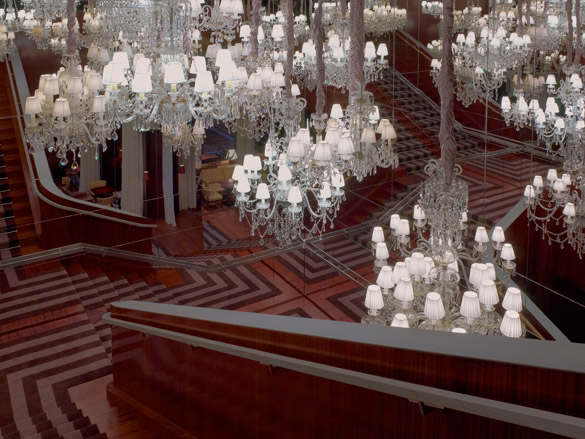
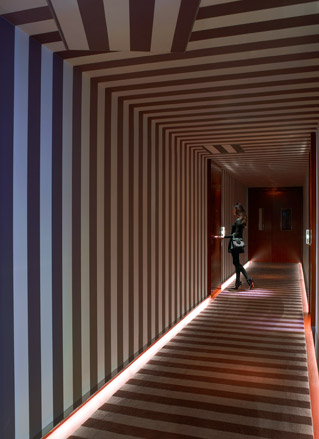
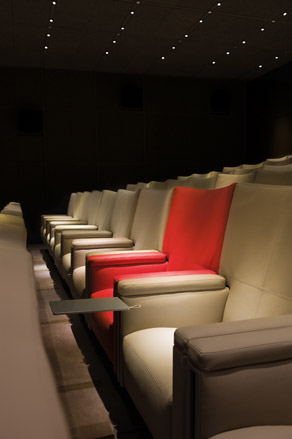
Malaika Byng is an editor, writer and consultant covering everything from architecture, design and ecology to art and craft. She was online editor for Wallpaper* magazine for three years and more recently editor of Crafts magazine, until she decided to go freelance in 2022. Based in London, she now writes for the Financial Times, Metropolis, Kinfolk and The Plant, among others.
-
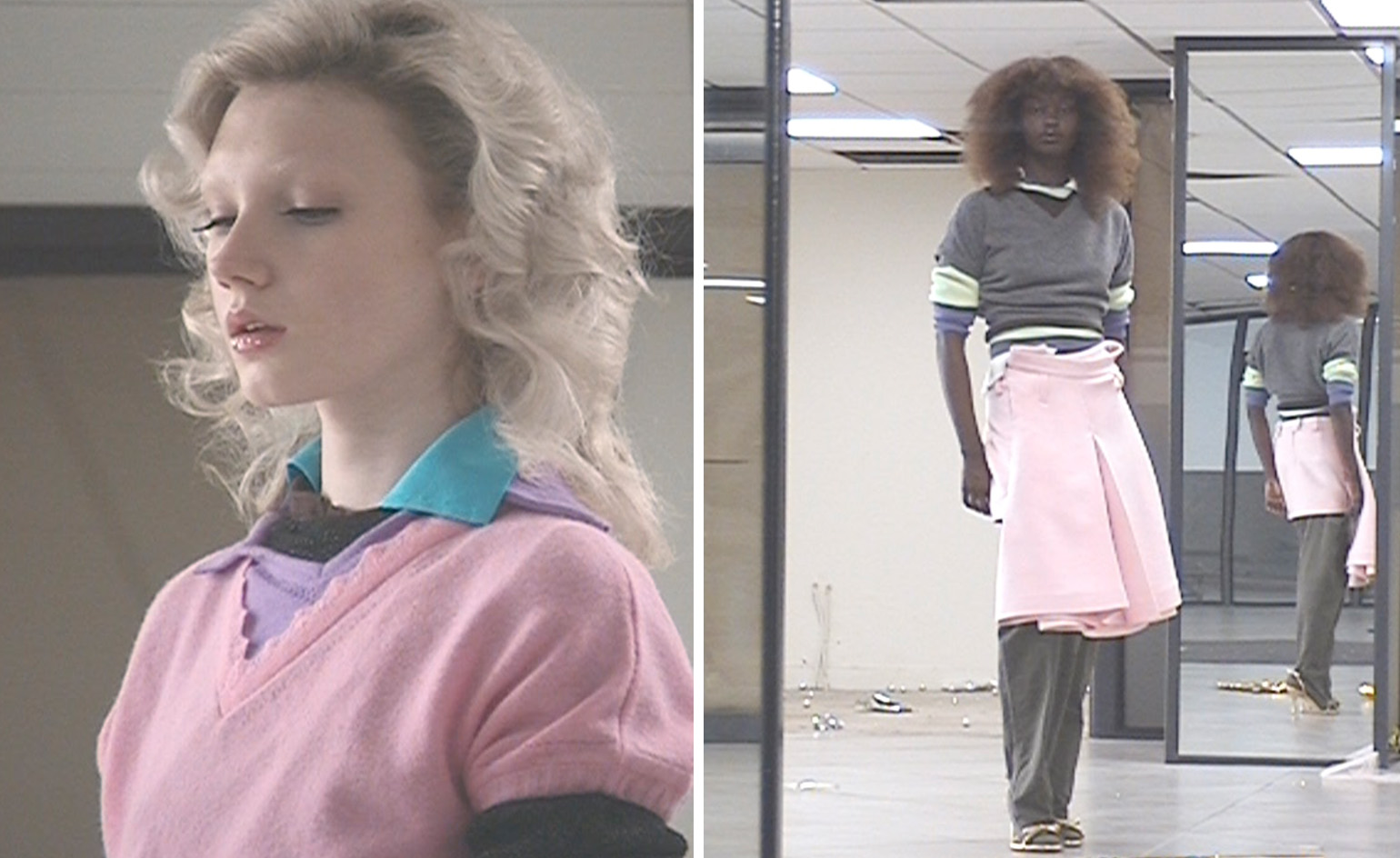 All-In is the Paris-based label making full-force fashion for main character dressing
All-In is the Paris-based label making full-force fashion for main character dressingPart of our monthly Uprising series, Wallpaper* meets Benjamin Barron and Bror August Vestbø of All-In, the LVMH Prize-nominated label which bases its collections on a riotous cast of characters – real and imagined
By Orla Brennan
-
 Maserati joins forces with Giorgetti for a turbo-charged relationship
Maserati joins forces with Giorgetti for a turbo-charged relationshipAnnouncing their marriage during Milan Design Week, the brands unveiled a collection, a car and a long term commitment
By Hugo Macdonald
-
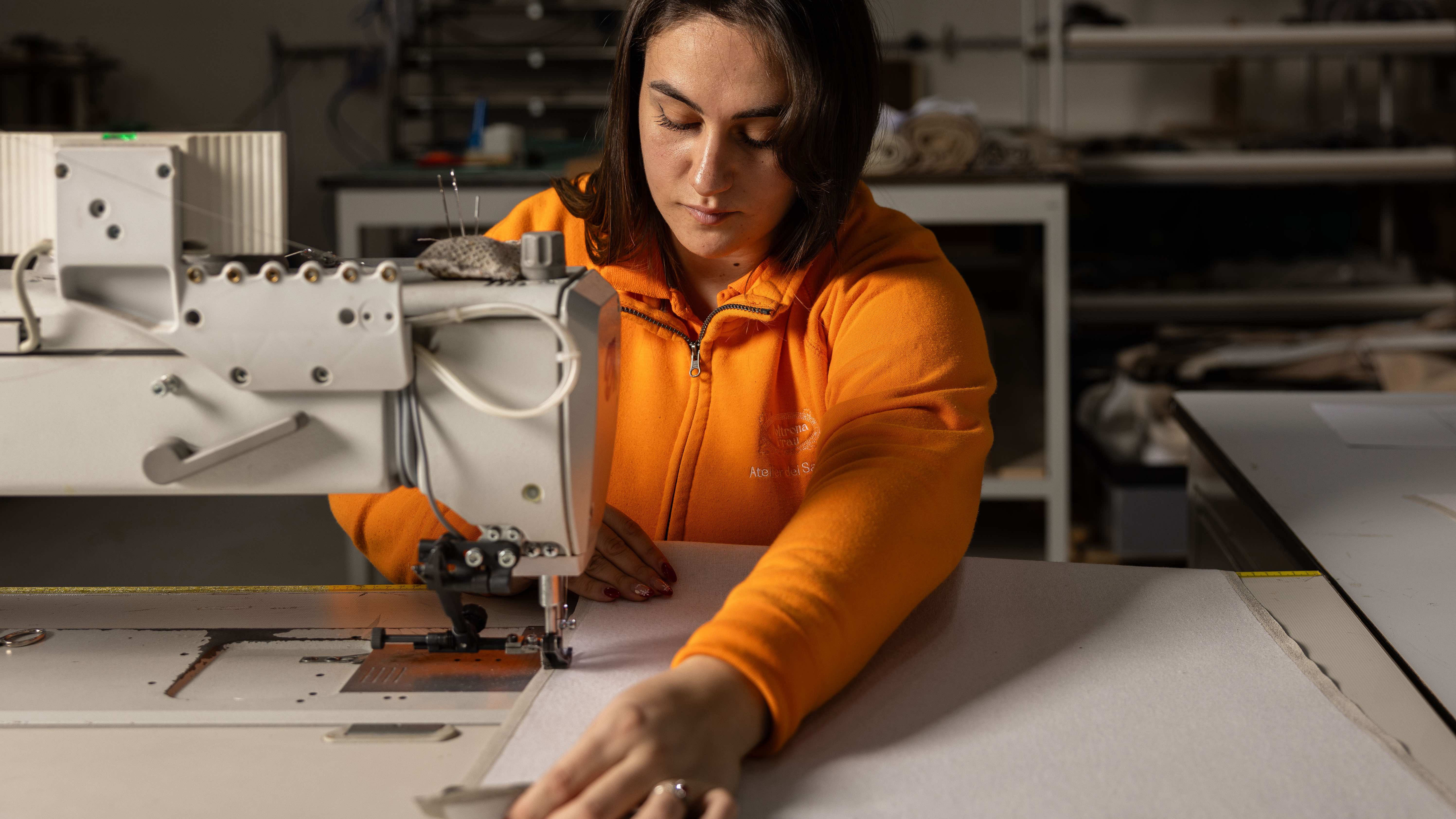 Through an innovative new training program, Poltrona Frau aims to safeguard Italian craft
Through an innovative new training program, Poltrona Frau aims to safeguard Italian craftThe heritage furniture manufacturer is training a new generation of leather artisans
By Cristina Kiran Piotti
-
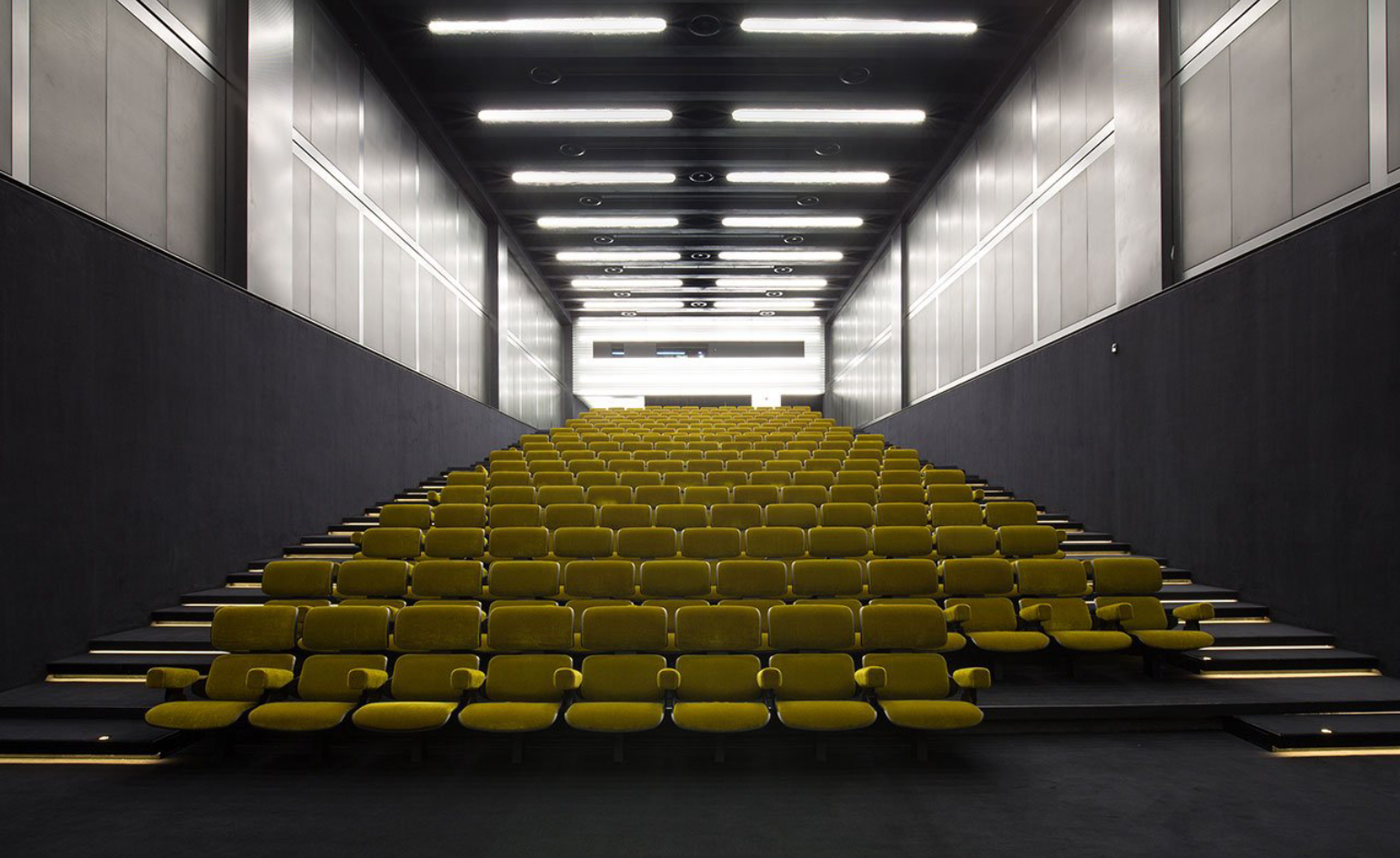 Must-visit cinemas with award-worthy design
Must-visit cinemas with award-worthy designThere’s more magic to the movies at these design-led cinemas, from Busan Cinema Centre’s ‘flying’ roof to The Gem Cinema Jaipur’s art deco allure
By Sofia de la Cruz
-
 Under one roof: Metrograph is a cinema, bookshop, bar and restaurant all in one
Under one roof: Metrograph is a cinema, bookshop, bar and restaurant all in oneBy Michael Slenske